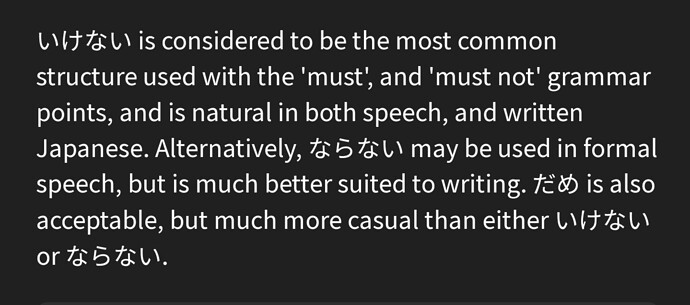Hey, so I’m a bit confused on what the difference in use is between these two. From my understanding, they both have a meaning of you have to do something, but I always put the wrong one in for reviews because I don’t know what context you would use each one in
They’re the same. Difference being いけない version is used in speech more, ならない can sound a bit more formal/stiff/written language
Okay, that’s kind of what I thought already so that’s helpful. Do you know if there is anyway to get bunpro to accept one in place of the other? Just because they are both pretty much permanently in my reviews at this point and it’s kind of annoying
There isn’t, because they’re two separate points. If you set it to use only one, you wouldn’t be able to review the other. Is it not giving you the yellow/orange hint nudge thing telling you “can you say it another way” or something?
In the “Hints” it should tell you if it’s looking for the “Fairly Formal” form or the “Most Formal” form. If the hints aren’t on by default you should be able to cycle through with the space bar.



